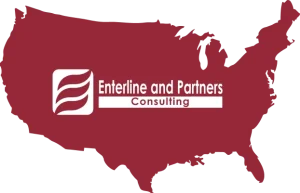The United States Citizenship and Immigration Services (“USCIS”) has updated its Policy Manual concerning untimely filed extensions of stay and change of status requests.
Generally, certain foreign nationals who are admitted to the United States as nonimmigrants for a specific period of time may file a Form I-539, Application to Extend/ Change Nonimmigrant Status in order to continue to engage in the activities to which they were admitted. An example of this request is a B-1/ B-2 nonimmigrant visa who was admitted to the United States for six (6) months may request to extend their stay for an additional 6 months. Certain foreign nationals may also request to change their status to another nonimmigrant category if they meet certain criteria. An example of this request is somebody who studied in the United States as a student under an F-1 visa and later accepted a job offer and who in turn changed their status to an H-1B Specialty Occupation.
Normally, USCIS will not approve an extension or change of nonimmigrant status to applicants who do not timely file (i.e. filing after their period of lawful admission has expired). In certain situations however, USCIS, in its discretion, may excuse the failure to timely file before the period of authorized stay has expired.
The updated guidance contained in the policy manual includes the following highlights:
- Provides that USCIS, in its discretion and under certain conditions, excuse the failure to timely file an extension or change of status if the delay was due to circumstances beyond the foreign national’s control.
- Clarifies that extraordinary circumstances may include but are not limited to where the delay was due to a slowdown or stoppage of work involving a strike, lockout or another labor dispute; or where the primary reason for the delayed filing is due to a lapse in government funding supporting those adjudications.
For more information, contact us at info@enterlinepartners.com and speak with a U.S. immigration attorney in Ho Chi Minh City, Manila and Taipei.
ENTERLINE & PARTNERS CONSULTING
Ho Chi Minh City, Vietnam Office
146C7 Nguyen Van Huong St, Thao Dien Ward,
District 2, Thu Duc City
Ho Chi Minh City, Vietnam
Tel: +84 933 301 488
Email: info@enterlinepartners.com
Facebook: Enterline & Partners – Dịch vụ Thị thực và Định cư Hoa Kỳ
YouTube: @EnterlineAndPartnersConsulting
Website: http://enterlinepartners.com
Manila, Philippines Office
Tel: +63 917 543 7926
Email: info@enterlinepartners.com
Facebook: Enterline and Partners Philippines
Website: https://enterlinepartners.com/language/en/welcome/
Copyright 2024. This article is for information purposes only and does not constitute legal advice. This article may be changed with or without notice. The opinions expressed in this article are those of Enterline and Partners only.








